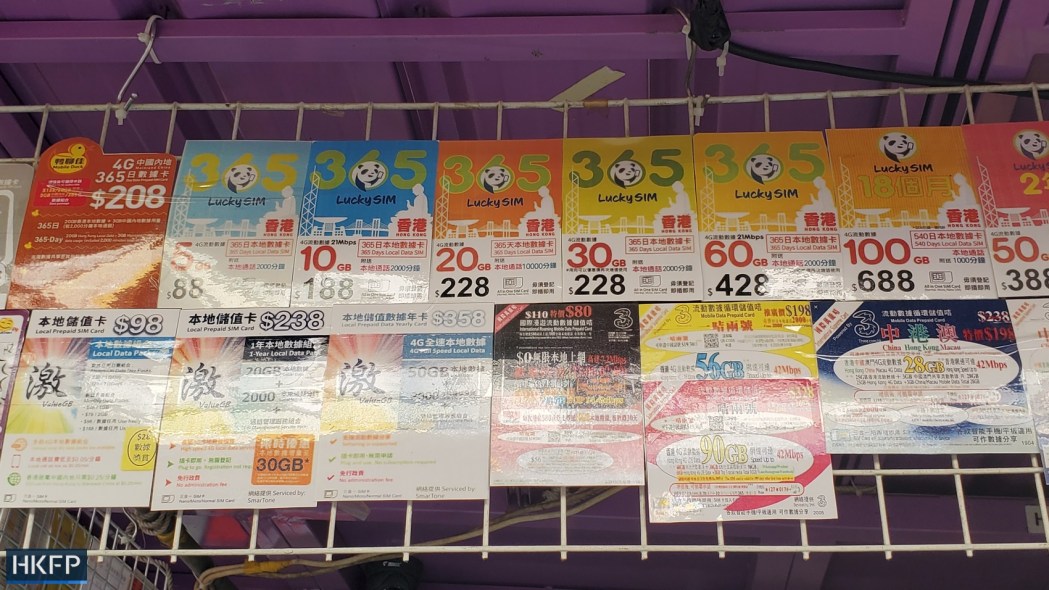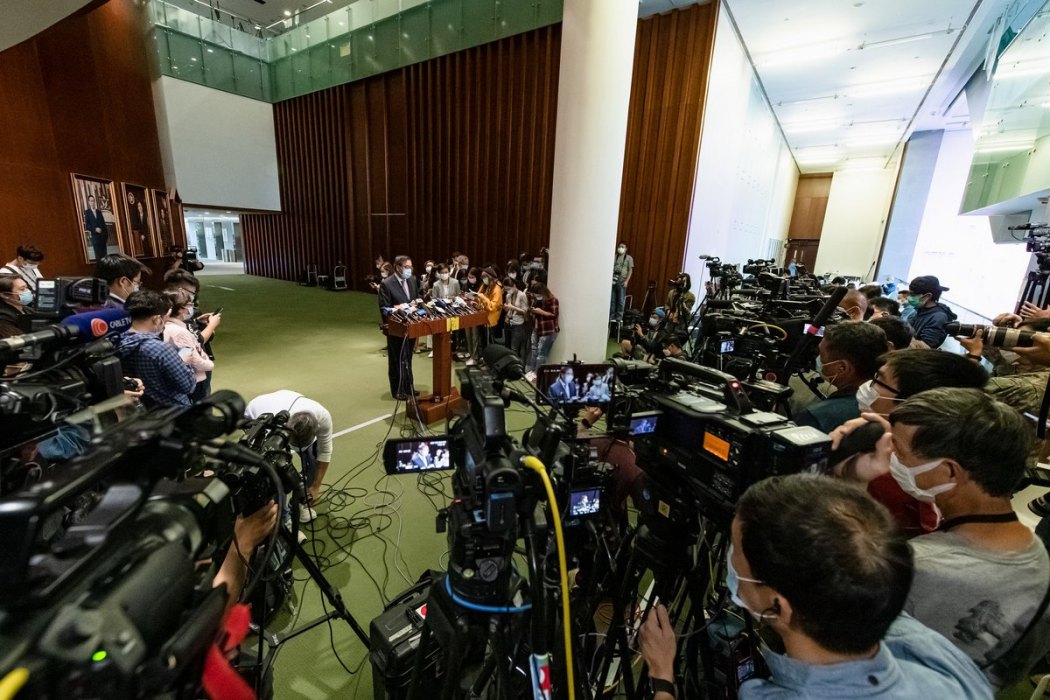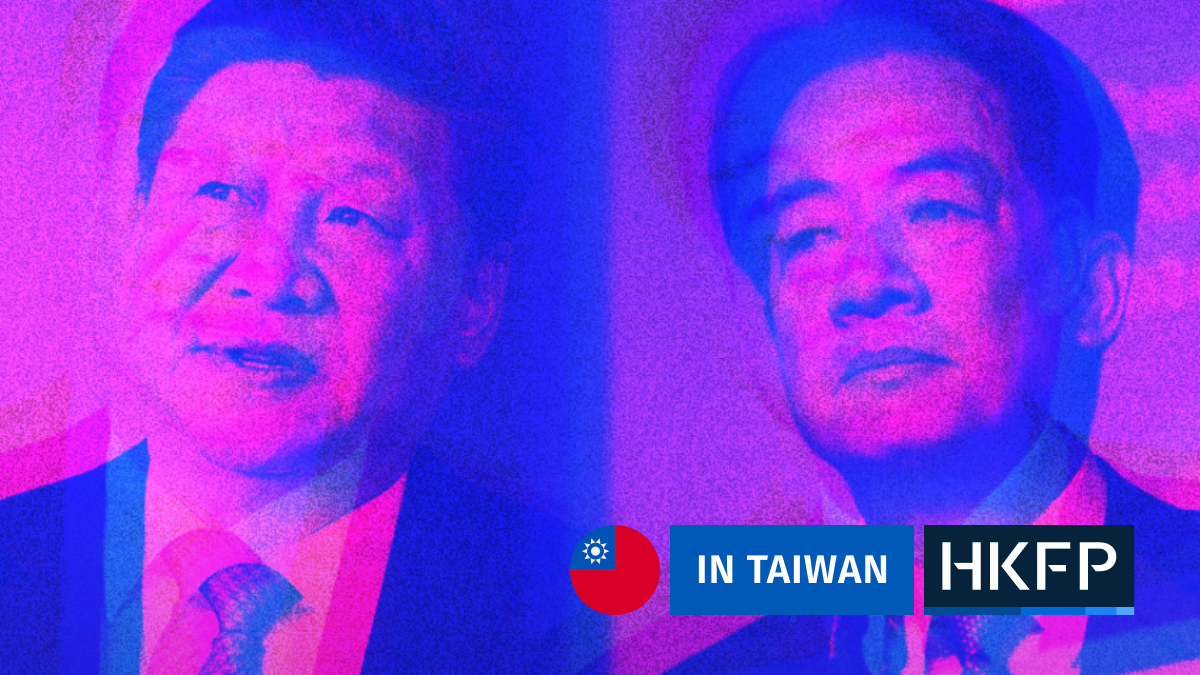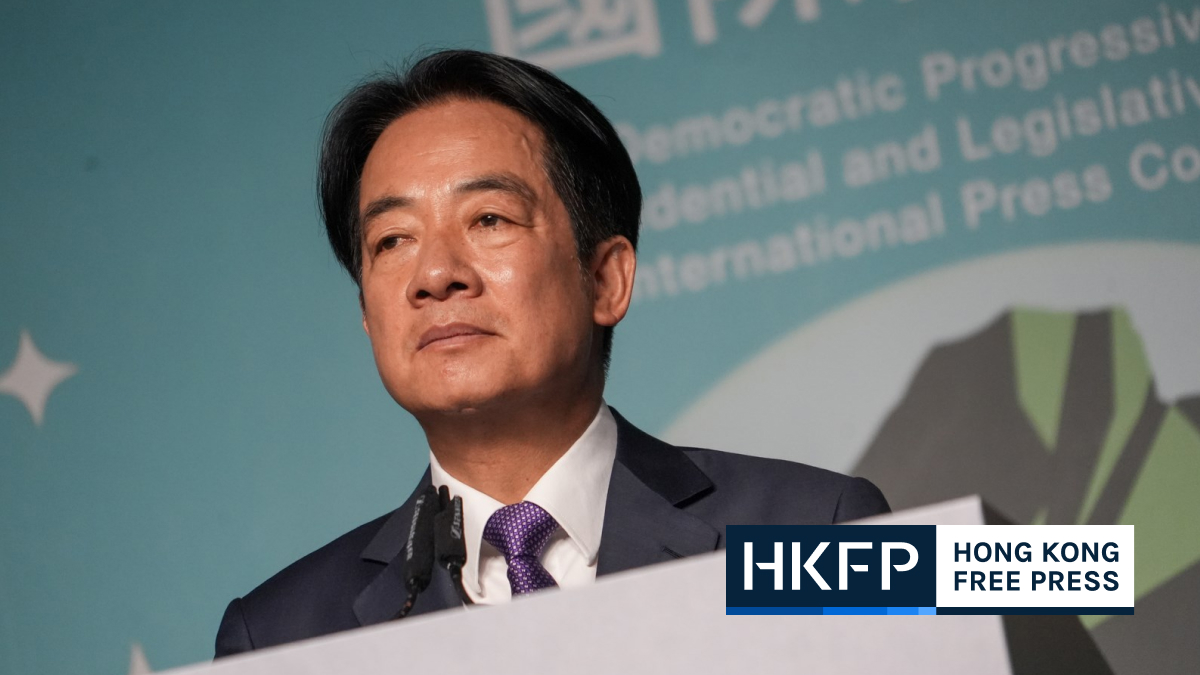Almost 60 per cent of Hong Kong people fear police will get new powers to acquire personal data from telecommunications companies under plans to make users register when buying prepaid SIM phone cards, according to a survey by the pro-democracy Civic Party.
The party on Thursday released results from a randomised telephone survey conducted between February 27-March 4 on the government’s proposal to introduce real-name registration for the cards.

Among the 758 respondents, 59.7 per cent said they were “worried” or “very worried” that police may – under certain circumstances – request the handover of personal information on SIM card users without a court warrant.
The survey also showed that 47.8 per cent of respondents believed the change would not help tackle crime. It cited a study by international mobile networks group GSMA in 2013, which found that there was a rise in kidnapping cases and ransom calls in Mexico after the government required SIM card users to register with their real names.
A public consultation period on the new SIM card rule ends on Saturday. The proposal was unveiled in January, when Secretary for Commerce and Economic Development Edward Yau said there was an urgent need to tackle the anonymous nature of prepaid SIM cards.
“There is a pressing need to plug this loophole… to facilitate the prevention and detection of crimes related to the use of [prepaid SIM] cards so as to maintain people’s confidence in the integrity of telecommunications services in Hong Kong,” he said.

In its consultation paper, the government said prepaid SIM cards enabled criminals to “conceal their real identity and evade detection.” The cards were also used for “serious and violent crimes that threaten public safety,” including bombing and drug trafficking.
The government suggested that SIM card users provide their names, identity document number, copy of identity document and date of birth. Those aged 16 or below should be endorsed by an “appropriate adult” to register.
It said law enforcement agencies may ask licensees to provide registration records on production of a magistrate’s warrant, or without a warrant in “certain urgent or emergency situations.”
The proposed programme is set to be rolled out in two phases. During the first phase, licensees should have a registration system ready within the 120 days after the regulation goes into force. The second phase would give SIM card users up to 360 days to register for their existing cards. Those not registered within the time limit will become void.

On Tuesday, the Hong Kong Journalists Association (HKJA) objected to the proposed policy, voicing fears that registration would make it difficult for journalists to protect their sources because the government did not clearly define “urgent and emergency situations.”
“Sources dare not provide information to the media, weakening the monitoring role of the media,” it said.
The HKJA also criticised the limit on all users, including companies, to register no more than three SIM cards for each licensee. The group said the suggestion was “completely impractical,” as the number of SIM cards needed for media outlets to conduct livestreaming would exceed the proposed quota.
Correction March 19, 2021: a previous version of this article incorrectly stated SIM card users have up to a year to register for their existing cards. They have 360 days.
Support HKFP | Policies & Ethics | Error/typo? | Contact Us | Newsletter | Transparency & Annual Report | Apps
Help safeguard press freedom & keep HKFP free for all readers by supporting our team

LATEST FROM HKFP
HKFP has an impartial stance, transparent funding, and balanced coverage guided by an Ethics Code and Corrections Policy.
Support press freedom & help us surpass 1,000 monthly Patrons: 100% independent, governed by an ethics code & not-for-profit.










